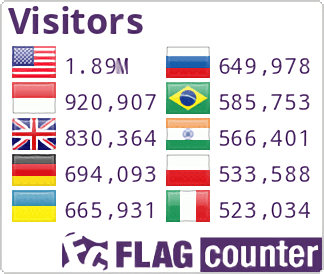Discovering the Concept of Basilea in Tupac Shakur’s Song “Ghetto Gospel”
A Study of Theology and Popular Culture
DOI:
https://doi.org/10.55935/thilo.v6i1.279Keywords:
Tupac Shakur, Ghetto, Ghetto Gospel, Basilea, Post-SoulAbstract
Theology and popular culture are two things that are very important to see in today’s context. Many people are beginning to see popular culture as part of their lives and cannot be let go. This can be seen in music, which is not only popular culture but also part of the culture itself. There are many forms of understanding of music, both negative and positive. Hip-hop music is by far a trending music in the context of the younger generation. One of the users of this music is Tupac Amaru Shakur. He is both a legend and an icon of hip-hop music. His songs are still heard today and have become favorites in various circles. This is because his songs hold a variety of theological meanings and values that are quite deep; therefore, this article will examine the theological meaning and value of one of his songs, Ghetto Gospel.
Downloads
References
Dziewanski, Dariusz. “From East Harlem to Cape Town: Tupac Shakur’s Legacy as a Globalised Oppositional Repertoire.” Ethnography 23, no. 2 (2022): 204–25. https://doi.org/10.1177/1466138120923372.
Epstein, Barbara. The Minsk Ghetto 1941-1943. Los Angeles: University Of California Press, 2008. https://doi.org/10.1525/california/9780520242425.003.0004.
Gallaty, Robby. Here And Now: Thriving In The Kingdom Of Heaven Today. Nashville: B & H Publshing, n.d. https://ebookcentral.proquest.com/lib/[SITE_ID]/detail.action?docID=4000658%0Ahttps://www.jstor.org/stable/43696553%0Ahttp://www.tandfonline.com/doi/abs/10.1080/03075079.2013.873026%0Ahttp://www.eskom.co.za/CustomerCare/TariffsAndCharges/Documents/RSA Dis.
Grimes, Katie. “But Do the Lord Care?” Political Theology 15, no. 4 (2014): 326–52. https://doi.org/10.1179/1462317x14z.00000000082.
Harrison, Anthony Kwame. “Racial Authenticity in Rap Music and Hip Hop.” Sociology Compass 2, no. 6 (2008): 1783–1800. https://doi.org/10.1111/j.1751-9020.2008.00171.x.
Haynes, Bruce, and Ray Hutchison. “Symposium on the Ghetto: The Ghetto: Origins, History, Discourse.” City and Community 7, no. 4 (2008): 347–52. https://doi.org/10.1111/j.1540-6040.2008.00271_1.x.
Hodge, Daniel White. Baptized in Dirty Water. Oregon: Cascade Books, 2019. https://doi.org/10.1007/978-94-6209-674-5_4.
———. Hip Hop’s Hostile Gospel: A Post-Soul Theological Exploration. Leiden: Koninklijke Brill, 2017.
———. Homeland Insecurity. Lisle, Illiinois: InterVarsity Press, 2018.
Hulu, Elisua. “Misi Kerajaan Allah Dan Implikasinya Bagi Gereja Masa Kini.” Missio-Christo 4, no. 4 (2022).
Khoiriyah, Niswati, and Syahrul Syah Sinaga. “Pemanfaatan Pemutaran Musik Terhadap Psikologis Pasien Pada Klinik Ellena Skin Care Di Kota Surakarta.” Jurnal Seni Musik 6, no. 2 (2017): 81–90. https://journal.unnes.ac.id/sju/index.php/jsm/article/view/20313.
Lynch, Gordon. Understanding Theology and Popular Culture. Malden: Blackwell Publishing, 2005.
Mahan, Jeffrey H. “Reflections on the Past and Future of the Study of Religion and Popular Culture.” In Between Sacred and Profane, edited by Gordon Lynch. London: I.B Tauris, 2007.
Morales, Juan C. “Between Basilea and Utopia: Exploring the Impact of Kingdom Theology in Us Latinx Pentecostalism.” Religions 12, no. 7 (2021). https://doi.org/10.3390/rel12070470.
Pearce, Sheldon. Change An Oral History Of Tupac Shakur. Simon & Schuster Paperbacks, 2022. https://www.ptonline.com/articles/how-to-get-better-mfi-results.
Pradana, Mohammad Ridi. “Imitasi Budaya Hip Hop Amerika Serikat Di Kalimantan Timur” 4, no. 4 (2016): 1223–38.
Reifer, Thomas Ehrlich. “Beyond the Triangle of Emancipation : Tupac ’ s Hip Hop Theory of Criminal ( In ) Justice , the Pope ’ s Playlist , and the Prophetic Imagination.” Carcereal Notebooks 3 (2012): 1–155.
Sternberg, Carolina. “Ghetto.” International Encyclopedia of Geography: People, the Earth, Environment and Technology, 2017, 1–5. https://doi.org/10.1002/9781118786352.wbieg0067.
Wells-Wilbon, Rhonda, Nigel D. Jackson, and Jerome H. Schiele. “Lessons from the Maafa: Rethinking the Legacy of Slain hip hop Icon Tupac Amaru Shakur.” Journal of Black Studies 40, no. 4 (2010): 509–26. https://doi.org/10.1177/0021934708315441.
Westhoff, Ben. The Original Gangstas. Boston: Hachette Books, 2016.
Widyatmadja, Josef P. Yesus Dan Wong Cilik. Jakarta: BPK. Gunung Mulia, 2010.

Additional Files
Published
How to Cite
Issue
Section
License
Copyright (c) 2024 Costantinus Ponsius Yogie Mofun

This work is licensed under a Creative Commons Attribution-NonCommercial-ShareAlike 4.0 International License.
The author retains copyright and also agrees to grant Theologia in Loco the right of first publication with the work simultaneously licensed under CC Attribution-NonCommercial-ShareAlike 4.0.






